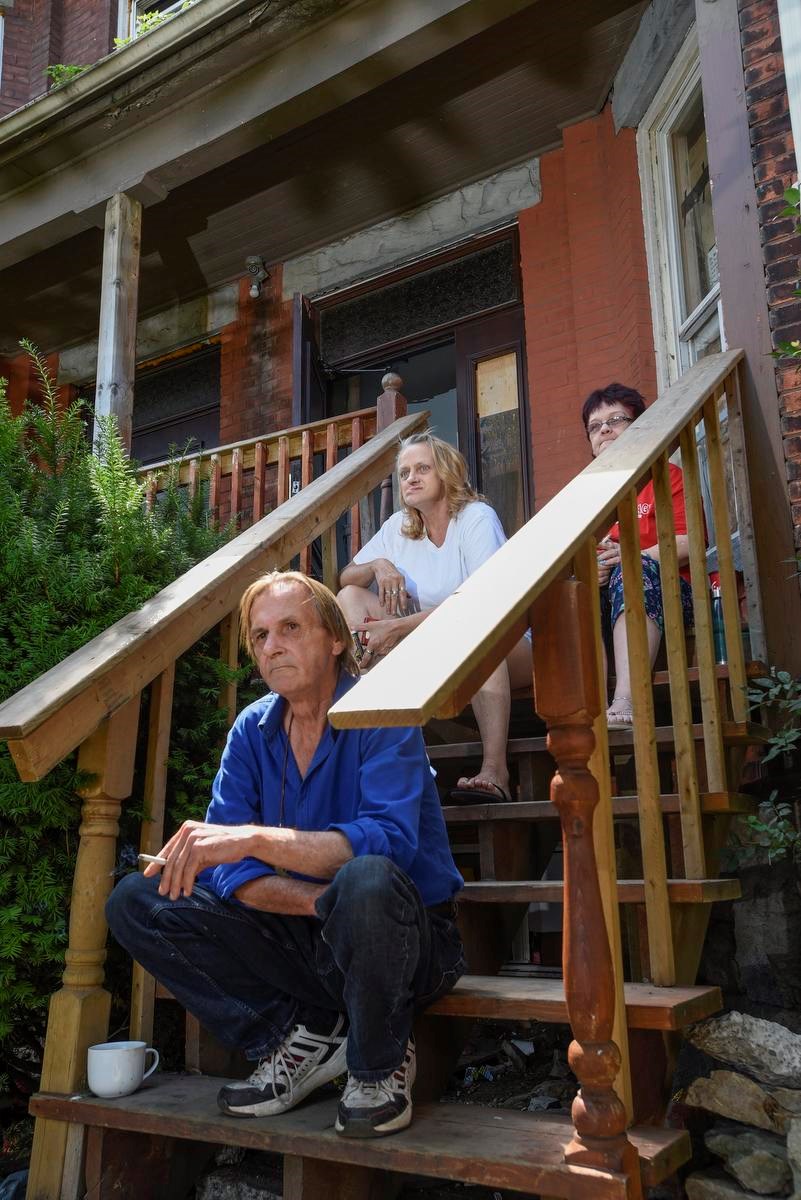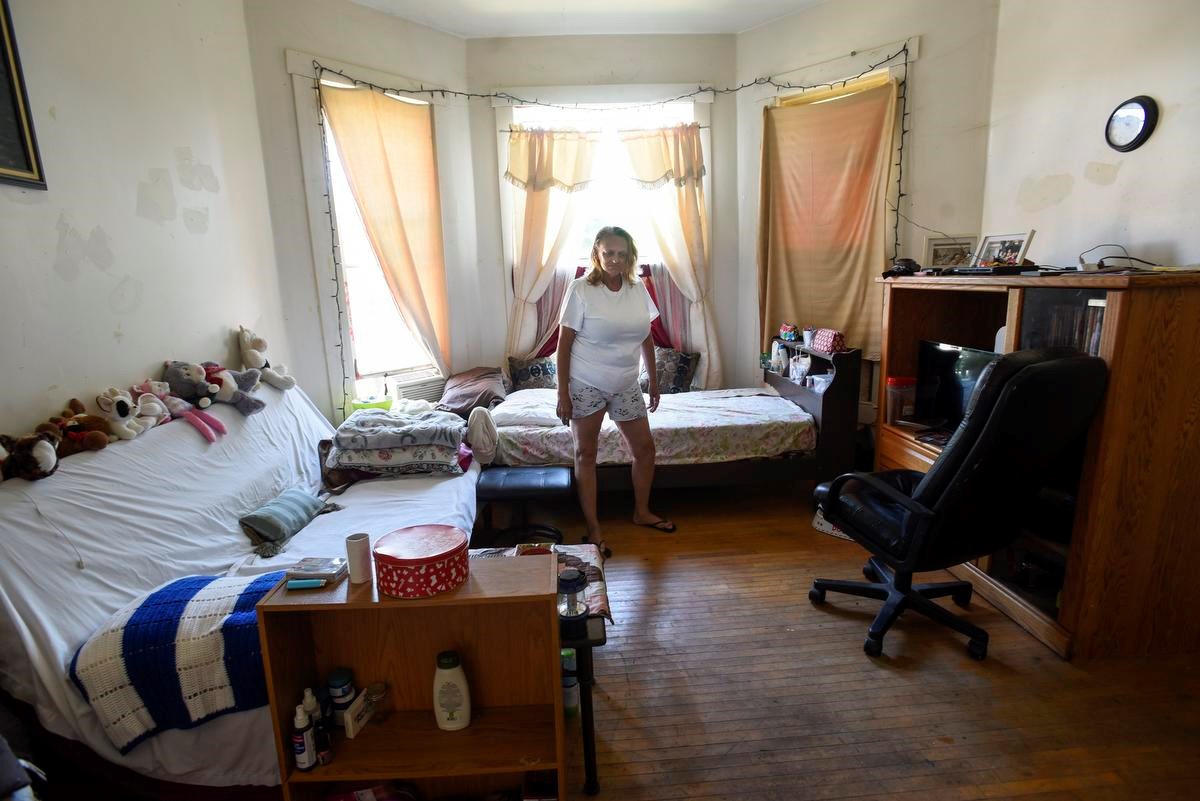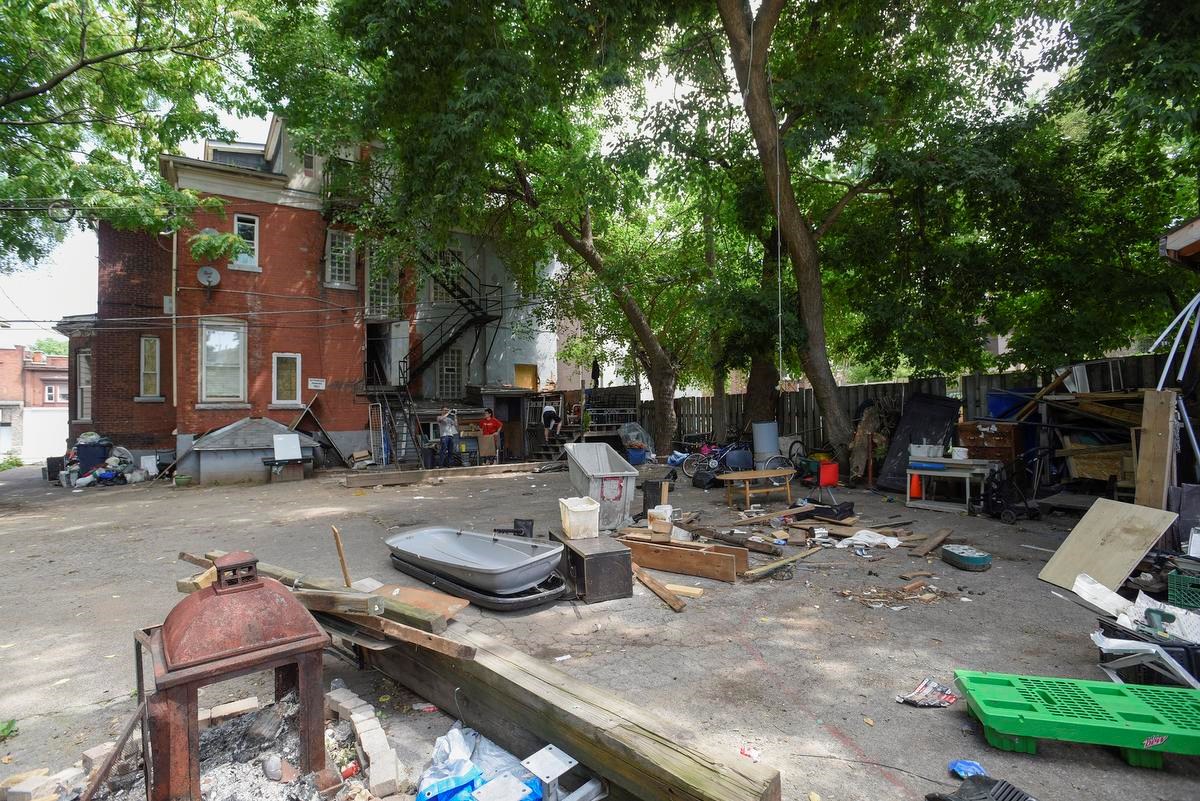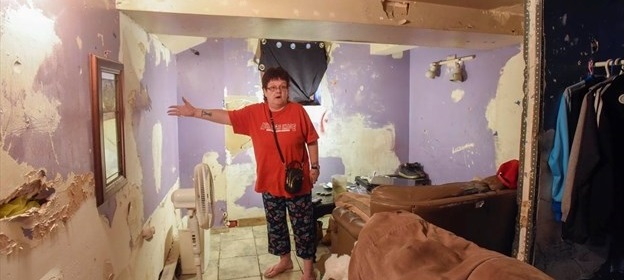Hamilton Spectator: Hamilton tenants want out of ‘Hell’s Gates,’ but with the right compensation
Posted August 7, 2019
Problems at 610-612 King St. E. were festering long before the new landlord took over, says property manager hired to vacate tenants.
Posted August 7, 2019
Edith Hardman can say she has a roof over her head. But that’s just about the only thing her basement apartment at 610-612 King St. E. has going for it.
For $1,200 a month, she has two mouldy bedrooms. Water leaks through the low ceiling. The tiny kitchen is in disrepair. The bathtub faucets have no handles.
And now, the new owner wants the tenants to leave so it can rebuild the multiplex, which is on a boarded-up stretch of King East expected to see developer dollars in anticipation of Hamilton’s future LRT line.
For Hardman, who gets by on a disability pension, the stakes are also high.
“I want to move out, but I want the right amount of money and the right agreement.”
The 50-year-old and other tenants say they were recently asked to sign letters that committed them to leaving their units.
Some balked at the initial offer — $2,000 to vacate within 30 days — and demanded compensation that would give them a better chance in Hamilton’s tight rental market.
“That ain’t gonna last too long. We need a roof over our head,” said Brian Simpson, Hardman’s husband, who noted he took the initiative to install kitchen cupboards after he moved in about a year-and-a-half ago.
But one big question looms large as they weigh their future: How was the building allowed to get so bad in the first place?
Property records show Gregory Bezdziecki sold the building to 610 King St. Inc. for a little more than $1,000,000 in May. He couldn’t be reached for comment Sunday.
Tenants are critical of the current owner’s efforts, but they acknowledge the building was in bad shape before it changed hands.
 Adam Kitchener, a freelance property manager recently hired to vacate the building, agrees it looks as though the issues were left to fester for years.
Adam Kitchener, a freelance property manager recently hired to vacate the building, agrees it looks as though the issues were left to fester for years.
“So, I think the problem is it wasn’t caught quick enough. … The new owner is going, ‘We need to do this, this and this.’ But really all that should have been done years ago.”
His Toronto-based clients want to restore the building to its original state, says Kitchener, noting he hasn’t been privy to architectural or engineering studies.
The city says two building permits — for fire separations, alarm pull stations, a stairway handrail and other minor work — have been issued for the address.
“To date, there have been no calls by the permit holder or the property owner for an inspection at this property,” city spokesperson Marie Fitzpatrick wrote in an email.
If safety concerns are flagged, she said, “building inspectors attend properties immediately to investigate, and take immediate action if deemed necessary.”
But Hamilton ACORN, an organization that looks out for tenants’ rights, argues the city is soft when it comes to property standards in rentals.
“What we see is that it’s being ignored and it’s being allowed to get this bad,” said chair Mike Wood, whose group has intervened to help the tenants at 610-612 King East.
Making matters worse, he often sees vulnerable tenants sell themselves short when new owners look to evict, renovate and charge higher rents.

“Because they don’t know their rights, they end up signing these papers.”
Whatever ends up on the table, tenants who spoke to The Spectator said they’d had enough of 610-612 King East.
The issues there — one resident called it “Hell’s Gates — are legion.
The ceilings have water damage. Rooms are mouldy. There are holes in the walls. Door frames are shoddy and broken. The lighting is poor. It’s crawling with cockroaches, bedbugs and rodents. Apartments where squatters once lived are now boarded up but residents say drifters still come and go. Needles litter the ground. Police frequently visit.
Kitchener said the new owner has hired a garbage disposal contractor to deal with trash piling up outside. A pest-control company is also on its way. Some electrical problems have been addressed.
He said he’s offering to help the tenants find other places to live, something he has done before.
Hardman and Simpson aren’t the only ones of limited means in the building. Others rely on social assistance. Some have mental health illnesses. Hoarding, for example, is a problem in some units.
Dianna Duplessie, who noted she has post-traumatic stress disorder and has fought addiction, worries she will end up homeless again if she has to leave.
“I feel that right now everybody’s scared and everybody’s pulling back. No one knows what to do.”
Duplessie said she and her fiancé, who has a mental illness, pool disability pensions to pay for an $800-a-month bachelor apartment with a single electrical outlet and a leaky ceiling.
Wood said far too often he sees vulnerable tenants sell themselves short when landlords look to renovate and charge higher rents.

“Because they don’t know their rights, they end up signing these papers.”
Last week, some tenants who met with Kitchener and ACORN representatives say they managed to increase the initial offer to $2,500 with a move-out date of October. Another meeting has been scheduled for Monday.
In Ontario, when landlords want to vacate units for major renovations, they issue N13 notices, which offers tenants the option to return at the same rate once the work is done.
Kitchener says N13 notices haven’t factored in this case because the new owner doesn’t yet have building permits for major work. Moreover, the overhaul could take several months.
Tom Cooper, director of the Hamilton Roundtable for Poverty Reduction, said situations like that at 610-612 King St. E. are symptoms of inadequate social assistance rates and not enough affordable housing.
“It’s hard to find a place that’s cheap enough for people on social assistance,” said Cooper, who noted the alternatives can be “hell holes.”
He added social service agencies that help people stay in decent apartments are also stretched to respond.
“It’s hugely challenging.”
Cooper suggested supportive-housing providers and more proactive inspections of rental units could make a difference.
“I think we can have some immediate solutions at the local level to help these folks out.”
Elizabeth MacLean, a 51-year-old who gets by on disability payments, says she found 610-612 King East (where she pays $850 a month) after a roommate in the last place she lived died. That was three years ago.
“I’d like to stay, if I can,” she said.
***
Article by Teviah Moro for the Hamilton Spectator

